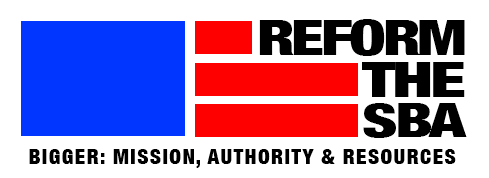Northwest Arkansas Democrat Gazette
March 2, 2021
by Stephen Steed
The coronavirus pandemic worsened the already-bad climate for minority-owned small businesses and their access to capital, according to an online panel discussion Monday hosted by the Winthrop Rockefeller Foundation.
The discussion was part of the foundation’s “Grow AR Own” virtual series featuring community, business and bank leaders to discuss the economic impact of inequity and how to solve the problem.
Citing figures from the U.S. Small Business Administration, the foundation said nearly $658 million in SBA loans had been disbursed in Arkansas from fiscal 2017 to 2020. While American Indians, Blacks and Hispanics account for 13% of the state’s 247,000 small businesses, they received just 2% of those loans, and 77% went to white-owned businesses. Businesses owned by women received just 8%.
Those businesses “face significant barriers accessing capital from banks and other traditional resources,” said Sherece West-Scantlebury, the foundation’s chief executive officer. “Businesses owned by people of color disproportionately have to rely on personal funds to start and grow businesses. Business owners of color perceive that traditional banks do not support or cater to their business needs.”
While lack of access has long been a problem, it has been made made worse by the pandemic, West-Scantlebury said. “The disparity in government capital support and traditional banking support during the covid-19 pandemic has only exacerbated the inequities,” she said.
West-Scantlebury said large traditional banks that have long been slow to respond to the needs of minority-owned businesses were the primary lenders of money from Congress’ Paycheck Protection Program. That money doesn’t have to be paid back if the small businesses retain employees.
For the latest round of the Paycheck Protection Program, it was only through intense lobbying by smaller banks and nontraditional lenders that the aid was better targeted to minority-owned small business, said Darrin Williams, a panelist and chief executive officer of Southern Bancorp.
“I think that the Paycheck Protection Program is one area where America saw what it means to not have access to a traditional financial institution,” Williams said.
Some $50 billion, he said, was “carved out” specifically for Community Development Financial Institutions, or CDFIs, such as Southern Bancorp, in the latest round of Paycheck Protection Program funding. Those banks, he said, have a mission of serving communities and neighborhoods of low to moderate incomes under-served, or not served at all, by traditional banks.
“The problem here is a structural problem,” Williams said. “They [Congress] used traditional channels we know are biased against Black and brown people. They used traditional financial institutions, so it was not designed to reach us. So if we’re going to continue to use these structural systems that are set up against us, then you’ll never do a good job [at finding equity].”
In 1988, some 14,000 banks were insured by the Federal Deposit Insurance Corporation, he said. There are fewer than 5,000 today, he said. “Where those banks have disappeared have been in Black or brown communities and rural and low-income communities,” Williams said.
Other panelists were Edward Haddock, district director of the Arkansas Small Business Administration; Miguel Lopez of Encore Bank; Julia Chears-Young of Precise Data Consulting; Bridgette Perkins of Elite Trucking LLC, and Hillis Schild of Arvest Bank.
https://www.nwaonline.com/news/2021/mar/02/minority-business-virus-hit-assessed/
